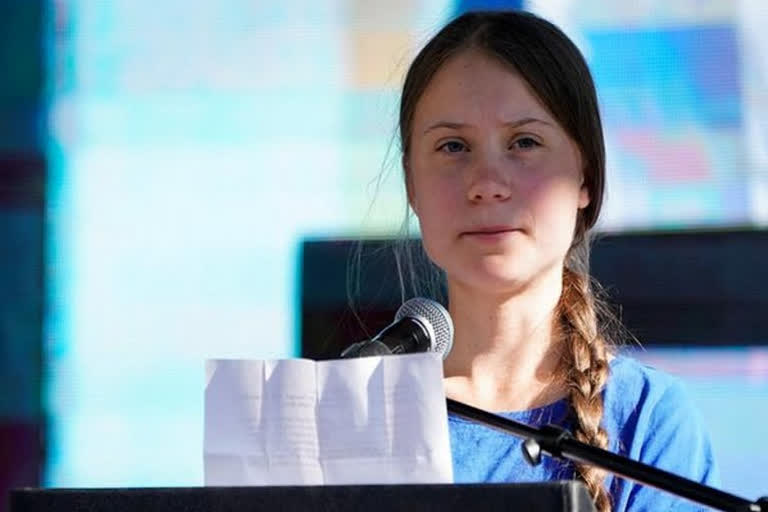Geneva: A UN-appointed panel of experts said Monday that the Earth is getting so hot that temperatures in about a decade will probably blow past the most ambitious threshold set in the Paris accord. That increases the risk of extreme weather and long-term climate-related disasters. The Paris agreement called for limiting temperature increases to well below 2 degrees Celsius (3.6 degrees Fahrenheit) — and ideally to no more than 1.5 degrees Celsius (2.7 degrees Fahrenheit) over pre-industrial levels.
Politicians, scientists and activists were swift to react to the report: The report was "a code red for humanity. The alarm bells are deafening, and the evidence is irrefutable: Greenhouse gas emissions from fossil fuel burning and deforestation are choking our planet and putting billions of people at immediate risk.” — United Nations Secretary-General Antonio Guterres.
"The new IPCC report contains no real surprises. It confirms what we already know from thousands of previous studies and reports — that we are in an emergency. ... It is up to us to be brave and take decisions based on the scientific evidence provided in these reports. We can still avoid the worst consequences, but not if we continue like today, and not without treating the crisis as a crisis.” — Greta Thunberg, teenage environmental activist.
“The impacts of the climate crisis, from extreme heat to wildfires to intense rainfall and flooding, will only continue to intensify unless we choose another course for ourselves and generations to come. What the world requires now is real action. All major economies must commit to aggressive climate action during this critical decade.” — John Kerry, U.S. special presidential envoy for the climate.
"We know what must be done to limit global warming — consign coal to history and shift to clean energy sources, protect nature and provide climate finance for countries on the frontline.” — British Prime Minister Boris Johnson, who is under pressure to block plans for a new coal mine in Cumbria.
“Those of us living in Africa have been aware of the urgency of the climate crisis for many years. Lives and livelihoods have been shattered by overwhelming heat, rising seas and extreme weather." — Mohamed Adow, who heads the Nairobi-based think tank Power Shift Africa.
“The world must urgently wind down the fossil fuel supply in an orderly and transparent way and halt high-risk high-cost oil and gas exploration now. That, or face physical catastrophe, stranded assets costs in the hundreds of billions to our infrastructure and a shock to the world economy a thousand times greater than the COVID pandemic." — Mark Campanale, of CarbonTracker, which analyzes data on climate change.
“The climate emergency is intensifying each day, and we in the Climate Vulnerable Forum — representing the most climate-vulnerable nations in the world — are on the front line, our nations battered by storms, droughts and rising seas." — Mohamed Nasheed, the former president of the Maldives who now represents a group of 48 countries particularly at risk of global warming.
(AP)



